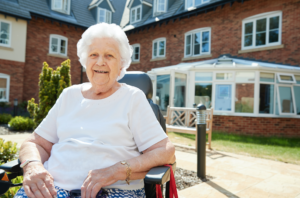Proper Planning
Helpful Steps to Take When Arranging for Elder Care
Photography Provided
Aging is a part of life, but that doesn’t mean it’s easy or seamless. Caring for elderly parents as you simultaneously raise your own family is especially challenging. That’s why planning is the best thing you can do.
According to Carol Applegate, an attorney with Applegate & Dillman Elder Law, as parents age, families should look closely at three areas. The first is health care. Families should ask, “What health challenges are my parents facing? Where are they living? How might they live in the future?” If they have received an early diagnosis of dementia, for instance, their health will invariably decline over time. Visit sites like https://www.orchardparkatsouthfork.com/memory-care-2/ to see your options. Learn about the best assisted living options for your elderly parents. If you are looking for an assisted living in Redding, CA, feel free to call the staff of Sundial Assisted living for details.
“At some point you’ll need to get extra care,” Applegate says. “You can’t keep them in the home because they are not safe there.”

The second area is finance. Ask, “What are their assets? Where are they holding their assets? Are those assets going to be enough for the remainder of their lives?” Consider financial documents, such as power of attorney, to help with their financial situation, as well as their health care representative to help with decisions about their health care.
Also, consider what their wishes are regarding end of life. A living will is extremely important, especially in light of COVID-19. Applegate has had several clients call her and say their parent was on the way to a hospital with a likely diagnosis of coronavirus. Each was frantic because their parent has a living will, but with COVID-19 there’s a chance that a respirator will help a patient improve. They wanted to know if they could override their parent’s living will.
“These kinds of conversations must be had prior to the crisis,” Applegate says.
Such documents are meant to put families at ease, because if a parent ends up in the hospital, and they have a living will and health care power of attorney, families will know their loved one’s wishes are being honored.
A funeral declaration is another advance directive. These documents need to be signed. If the elder patient is no longer able to make decisions for themselves and are determined to be incompetent – or if they end up in quarantine due to COVID-19 – those documents can’t be signed, as they need to be notarized or witnessed (representatives in care facilities will not witness). This is why it’s vital to have those tough conversations early on. Pre-planning a simple cremation service or multicultural funerals like Asian funerals can also be helpful and you might as well consider looking into 18 Gauge steel caskets.
The final area to consider involves public benefits that can be used to help pay for care. Some patients may have long-term care insurance costs. They might need Medicaid or require a second mortgage on their home to help pay for some of this.
“It’s important to start planning five or six years in advance to be eligible for those benefits,” Applegate says. “I hear all the time from clients, ‘I need to put mom and dad in a memory care unit, but we have no idea what they have.’

Planning, however, will help to facilitate the entire process.
“When we are making decisions in a crisis, we are making emotional decisions,” Applegate says. “When we plan ahead, however, we are making logical decisions.”
She stresses that making a plan doesn’t mean it has to be followed to the letter.
“COVID has proven to us that our lives can change overnight, which they did,” Applegate says. “Many people were caught off-guard during those first few months of COVID, as they recognized that they should have talked about [these topics earlier] but never did.”
No doubt these are tough conversations to have. The words “nursing home” can strike fear in elderly individuals, but talking issues through makes for a smooth, less stressful transition.
“The greatest gift you can ever give your children is to sit down and talk to them about end of life, and what you want to have happen, even down to the funeral planning,” says Applegate, who knows firsthand how doing so can lift the weight of the world off one’s shoulders.
“My mom died when my sister was on a cruise,” recalls Applegate, who was instantly both grief-stricken and overwhelmed by the thought of having to make all the funeral arrangements.
She soon learned, however, that her mother had already taken care of everything, even down to noting that she preferred not to have an obituary printed in the local newspaper.
“That was such a relief because when you’re grieving, you don’t want to deal with the nitty gritty of arranging a funeral and all the decisions that go with it,” Applegate says. “A plan truly is a gift.”
For more on Applegate & Dillman Elder Law, visit dillmanlawgroup.com.



















